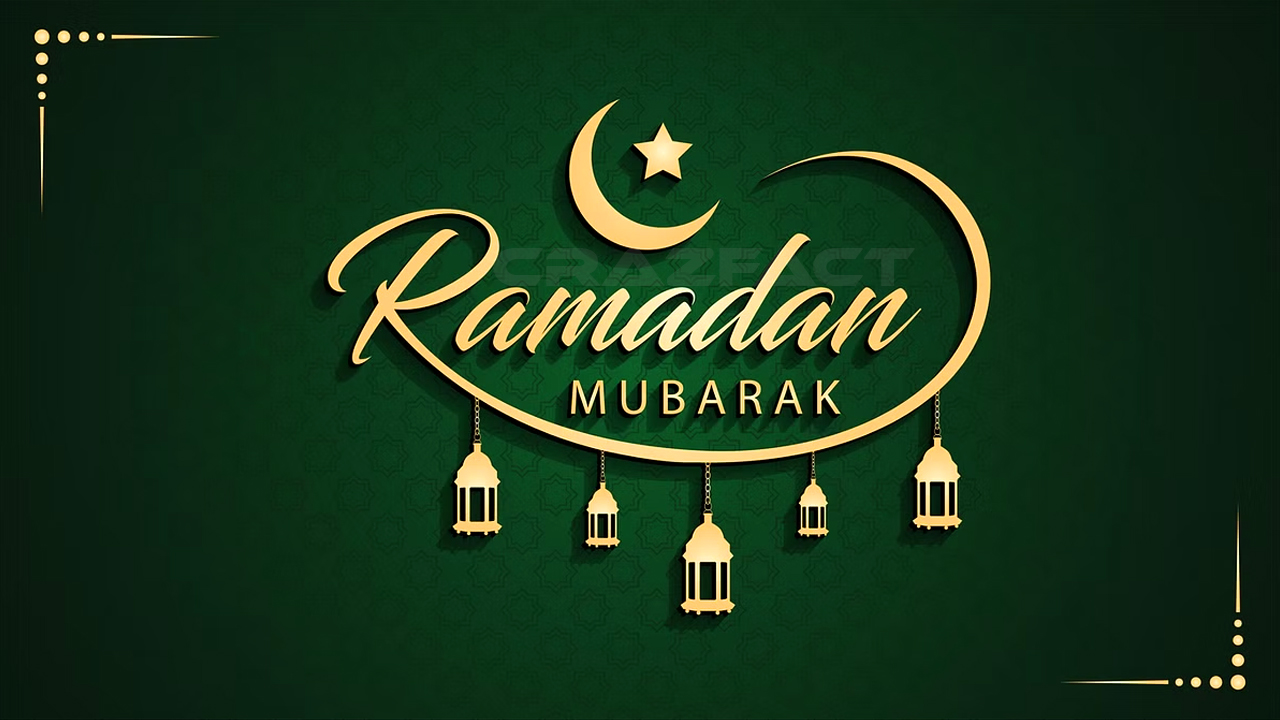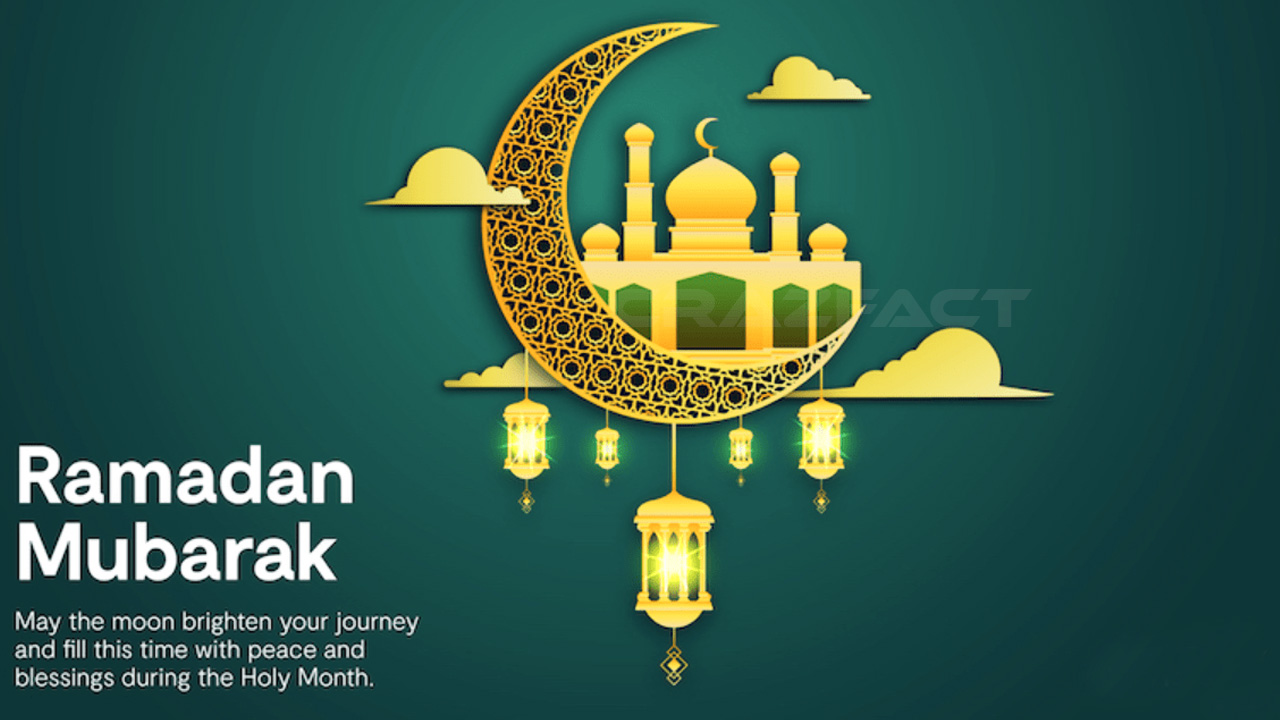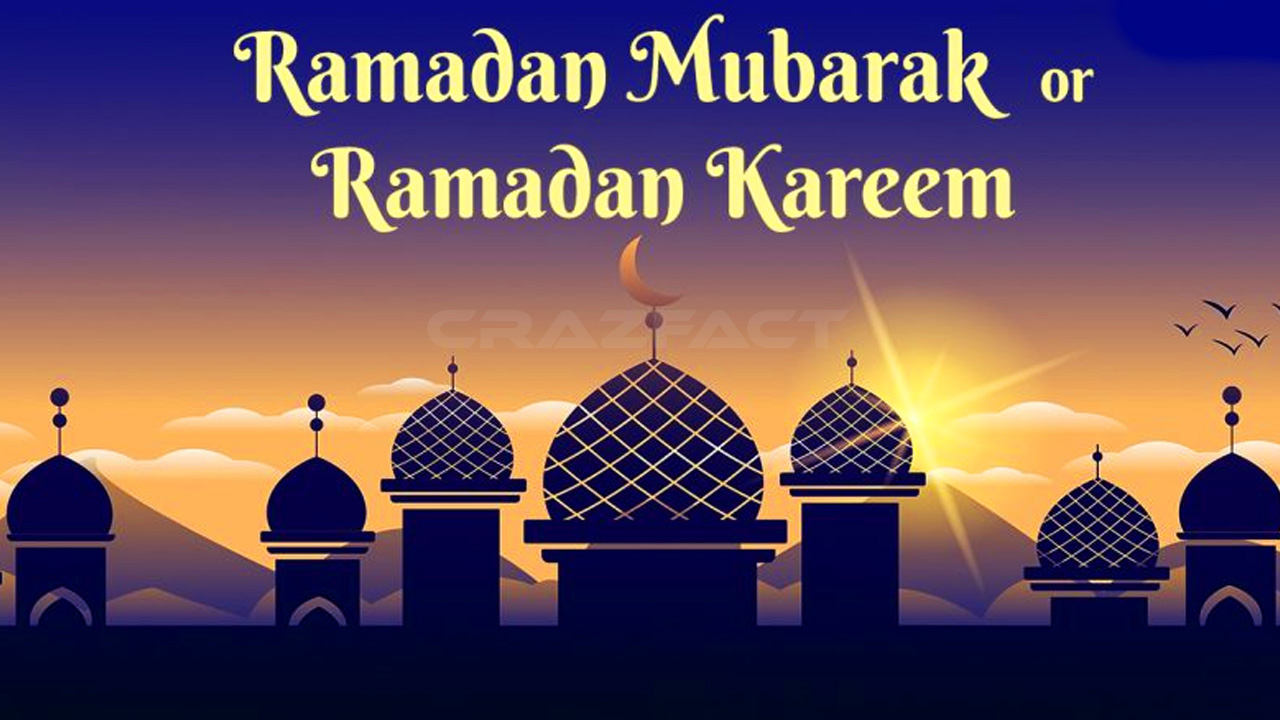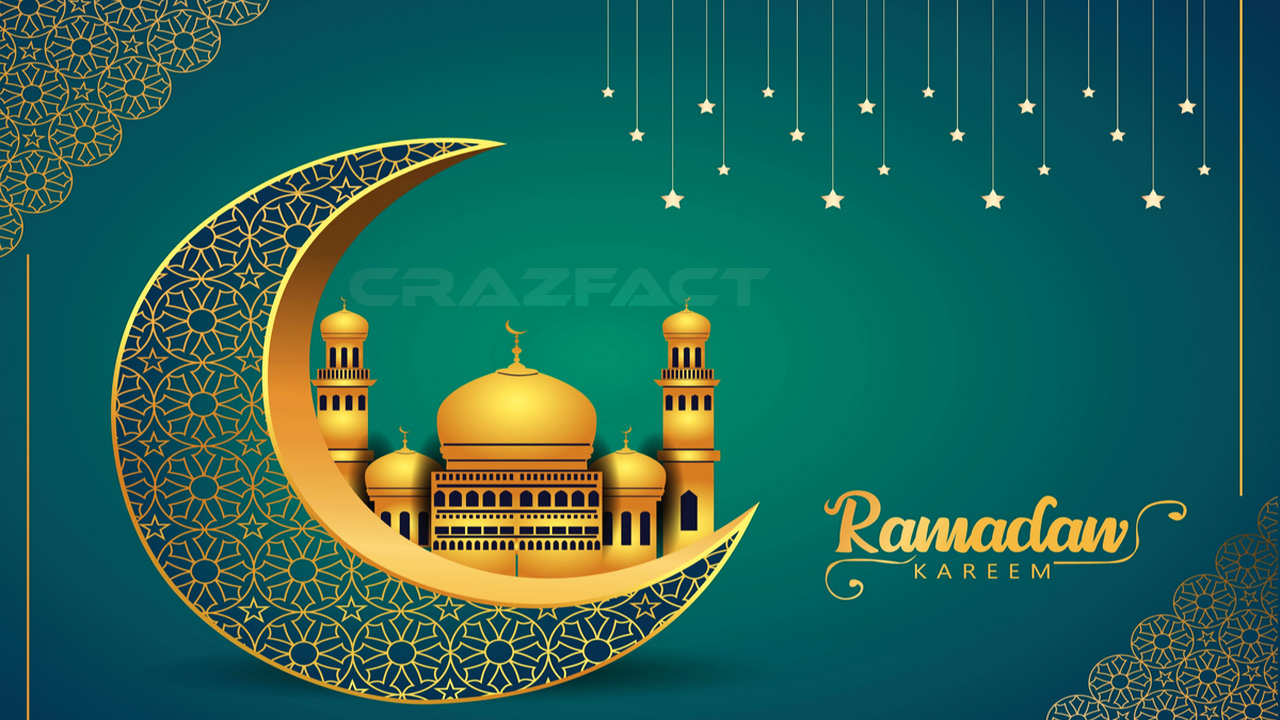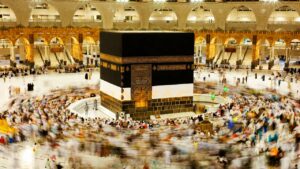Ramadan is the ninth month of the Islamic lunar calendar and is observed by Muslims around the world as a period of fasting, spiritual reflection, and increased devotion to Allah. During this month, Muslims abstain from food, drink, and other physical needs from dawn until sunset.
The fast is broken each evening with a meal called iftar, which typically consists of dates and water followed by a larger meal with family and friends. It is a time of community, generosity, and compassion, with many Muslims choosing to give to charity and help those in need.
Beyond fasting, Ramadan is a time of increased spiritual reflection and prayer. Muslims are encouraged to read the Quran more frequently and to attend additional prayer services, particularly during the last 10 days of the month, which are considered especially sacred.
Ramadan culminates with the holiday of Eid al-Fitr, a joyous celebration that marks the end of the month-long fast. On this day, Muslims gather with family and friends to exchange gifts and enjoy memorable meals.
Ramadan is not only a time for personal spiritual growth and reflection but also a time to strengthen ties with family, friends, and the wider Muslim community. It is a time to focus on gratitude and compassion and to remember those who are less fortunate.
- Ramadan is the ninth month of the Islamic calendar.
- It is observed by Muslims worldwide as a month of fasting, prayer, and reflection.
- The word Ramadan comes from the Arabic root word ramida or ar-ramad, which means scorching heat or dryness.
- Fasting during Ramadan involves abstaining from food, drink, smoking, and sexual activity from dawn until sunset.
- It is one of the Five Pillars of Islam, along with the declaration of faith, prayer, giving to charity, and performing the Hajj pilgrimage to Mecca.
- Fasting is mandatory for all adult Muslims who are physically able to do so.
- Pregnant women, menstruating women, and individuals who are ill or traveling are exempt from fasting but are required to make up the missed days later.
- The fast is broken each day at sunset with a meal called Iftar.
- The Prophet Muhammad is believed to have said, “When one of you is fasting, he should break his fast with dates, but if he cannot get any, then (he should break his fast) with water, for water is purifying.”
- The pre-dawn meal is called Suhoor, and it is recommended to eat it before the fast begins.
- Muslims are encouraged to increase their spiritual activities during Ramadan, including reading the Quran and attending the mosque for nightly prayers.
- The Night of Power, or Laylat al-Qadr, is considered the most blessed night of the year and is believed to fall within the last ten days of Ramadan.
- Muslims believe that the Quran was first revealed during the month of Ramadan.
- Fasting during Ramadan is not only a physical act of self-discipline but also a spiritual act of worship and an opportunity for self-reflection and personal growth.
- In some Muslim-majority countries, Ramadan is a national holiday, and businesses and schools have reduced hours or close altogether.
- The sighting of the crescent moon marks the beginning of Ramadan, and the sighting of the next crescent moon marks the end of the month.
- Ramadan is a time for forgiveness and reconciliation, and Muslims are encouraged to seek forgiveness from those they have wronged and to reconcile with their estranged family and friends.
- Zakat, the giving of charity, is often increased during Ramadan as a way to help the less fortunate and to gain spiritual rewards.
- The fast is also a reminder of the suffering of the less fortunate and a call to action to alleviate their suffering.
- The month of Ramadan is an opportunity for Muslims to strengthen their connection to God and renew their commitment to their faith.
- The fast is also a way to experience the hunger and thirst of those who suffer from poverty and drought around the world.
- In some Muslim communities, it is traditional to have a community Iftar, where people come together to break their fast.
- The month of Ramadan is a time for reflection on one’s own behavior and actions and a time to make positive changes.
- The fast is a way to purify the body and the soul and to increase one’s spiritual awareness.
- Ramadan is a time for increased generosity and kindness towards others.
- Fasting during Ramadan is a way to practice self-control and discipline, which can lead to improved physical and mental health.
- Muslims are encouraged to avoid negative behavior during Ramadan, including gossiping, lying, and engaging in other forms of harmful speech.
- The fast is intended to be a hardship, and Muslims are encouraged to embrace this hardship as a way to strengthen their faith and increase their rewards in the afterlife
- Ramadan is believed to be the month in which the Quran was revealed to the Prophet Muhammad over 1400 years ago.
- Muslims believe that the fast during Ramadan purifies the soul, increases piety, and brings them closer to God.
- Ramadan is also a time to strengthen family and community ties through shared meals, prayers, and charitable giving.
- Muslims are encouraged to engage in acts of kindness, generosity, and compassion during Ramadan and throughout the year.
- Many Muslims also choose to read the entire Quran during Ramadan as a spiritual practice.
- The fast during Ramadan is not just about abstaining from food and drink but also about abstaining from negative thoughts and behaviors.
- In some countries, non-Muslims are also encouraged to show respect for Ramadan by not eating or drinking in public during the day.
- Ramadan is a time for Muslims to reflect on their past mistakes and seek forgiveness from God and from others they may have wronged.
- In addition to fasting, Muslims are encouraged to engage in voluntary acts of worship, such as night prayers and charity work.
- Some Muslim scholars believe that the fast during Ramadan can also have physical health benefits, such as improved digestion and lower cholesterol levels.
- Muslims are encouraged to break their fast with simple, nutritious foods and to avoid overeating.
- In some Muslim countries, businesses and government offices may have reduced hours during Ramadan to accommodate those who are fasting.
- Ramadan is a time for increased spiritual reflection and contemplation, as well as increased community engagement and social responsibility.
- Muslims are encouraged to pray for peace, justice, and mercy during Ramadan and throughout the year.
- The fast during Ramadan is also a way to demonstrate solidarity with those who are less fortunate and who may struggle to access food and water on a daily basis.
- Many Muslims also choose to donate to charity during Ramadan, including to organizations that provide food and other necessities to those in need.
- In some Muslim countries, Ramadan is a time for increased cultural activities and celebrations, such as music and dance performances.
- Muslims are encouraged to make the most of the opportunities for spiritual growth and personal reflection that Ramadan provides.
- In some countries, the month of Ramadan may be preceded by a period of spiritual preparation, such as a week of fasting or increased acts of worship.
- The fast during Ramadan is intended to be a voluntary act of worship and is not intended to cause harm to the body.
- Muslims are encouraged to stay hydrated during Ramadan by drinking plenty of water when they are not fasting.
- The fast during Ramadan is a way to increase awareness of the needs of others and to promote social justice and equality.
- Muslims are encouraged to avoid excessive or wasteful consumption during Ramadan, including food, water, and other resources.
- Ramadan is also a time for increased interfaith dialogue and understanding, as non-Muslims may be curious about the practices and beliefs of their Muslim neighbors.
- Muslims are encouraged to avoid negative thoughts and behaviors during Ramadan, such as anger, envy, and selfishness.
- Ramadan is a time for increased reflection on the meaning and purpose of life, as well as on the importance of spirituality and faith.
- In some Muslim communities, it is traditional to break the fast with a bowl of soup, which is believed to be gentle on the stomach after a day of fasting.
- The fast during Ramadan is intended to be a way to cultivate mindfulness, gratitude, and humility.
- Muslims are encouraged to use Ramadan as an opportunity to make positive changes in their lives, such as breaking bad habits or starting new ones.
- Muslims are encouraged to seek forgiveness from God and from others during Ramadan and to forgive those who have wronged them.
- Ramadan is a time to strengthen bonds with family, friends, and community members through acts of kindness, generosity, and compassion.
- Many Muslims choose to perform acts of charity and donate to those in need during Ramadan, as a way of fulfilling their religious obligations and promoting social justice.
- Ramadan is also a time for increased spiritual reflection and contemplation, as well as for seeking guidance and inspiration from religious texts and teachings.
- The fast during Ramadan is a way of practicing self-discipline and self-control and demonstrating faith and devotion to God.
- Ramadan is a time to celebrate the diversity of Muslim cultures and traditions around the world, as well as to promote mutual respect and understanding between different faiths and cultures.
- Muslims are encouraged to spend more time praying and meditating during Ramadan to deepen their spiritual connection with God and seek guidance and wisdom.
- Many Muslims also choose to perform acts of community service and volunteer work during Ramadan, as a way of giving back to their communities and helping those in need.
- Ramadan is a time to reflect on the blessings of life and to express gratitude for them, as well as to seek forgiveness for past mistakes and transgressions.
- Muslims are encouraged to be mindful of their speech and conduct during Ramadan and to avoid engaging in gossip, slander, or other negative behaviors.
- Ramadan is a time to focus on building strong relationships with God and with others and to seek forgiveness and reconciliation where necessary.
- The fast during Ramadan is also believed to have health benefits, such as improving digestion, reducing inflammation, and promoting weight loss.
- Muslims are encouraged to break their fast with dates and water, as this was the tradition of the Prophet Muhammad and is believed to have health benefits as well.
- Ramadan is a time to celebrate the unity and diversity of the Muslim community, as well as to promote social harmony and cooperation among all people.
- Many Muslim countries and communities also hold cultural festivals and events during Ramadan, featuring music, dance, and other forms of artistic expression.
- Ramadan is a time to deepen one’s spiritual connection with God and to seek guidance and wisdom for the challenges of life.
- Muslims are encouraged to be patient and steadfast during Ramadan and to persevere in their religious and moral commitments despite any difficulties or obstacles they may encounter.
- Ramadan is also a time to reflect on the challenges facing the global community, such as poverty, war, and environmental degradation, and to take action to address these issues.
- Muslims are encouraged to observe Ramadan with sincerity, humility, and a deep sense of gratitude and reverence for God and for all of God’s creation.
- Ramadan is a time to reflect on the teachings of the Prophet Muhammad, including his emphasis on compassion, justice, and mercy toward all people.
- Muslims are encouraged to engage in acts of self-reflection and introspection during Ramadan, as a way of improving their character and deepening their understanding of themselves and the world around them.
- The final 10 days of Ramadan are considered particularly holy and are known as the “Night of Power” or Laylat al-Qadr in Arabic. This is believed to be the night when the first verses of the Quran were revealed to the Prophet Muhammad.
- Muslims often spend the Night of Power in prayer, meditation, and spiritual reflection, seeking to deepen their connection with God and seeking guidance and blessings for the year ahead.
- In some Muslim countries, it is customary to read the entire Quran during the month of Ramadan, either individually or in groups.
- Muslims are encouraged to increase their acts of worship during Ramadan, including performing extra prayers, reciting the Quran, and giving to charity.
- Many mosques hold special nightly prayers called Taraweeh during Ramadan, which involve reciting portions of the Quran and performing extra prayers.
- Ramadan is a time for Muslims to focus on their spiritual development and deepen their relationship with God, but it is also a time for strengthening bonds with family, friends, and community members.
- Muslims are encouraged to invite guests to share in their iftar meal, particularly those who may be alone or in need.
- Many Muslim countries have special Ramadan traditions, such as firing cannons or ringing bells to signal the end of the fast or preparing special Ramadan sweets and desserts.
- Muslims are encouraged to avoid all forms of sin and wrongdoing during Ramadan and to strive to be better and more virtuous people.
- Ramadan is a time for Muslims to reflect on the example of the Prophet Muhammad, who was known for his compassion, kindness, and generosity toward all people.
- Ramadan is a time to remember those who are less fortunate and to give to charity, as a way of promoting social justice and compassion.
- Muslims are encouraged to seek forgiveness from those whom they may have wronged or hurt and to reconcile with family members and friends with whom they may have had disagreements or misunderstandings.
- Ramadan is a time to focus on one’s relationship with God and to seek guidance and blessings for the year ahead, as well as to deepen one’s connection with the wider Muslim community.
- Muslims believe that fasting during Ramadan is a way of purifying the soul and attaining spiritual closeness to God, as well as a way of showing gratitude for all of God’s blessings.
- Many Muslims also choose to perform acts of charity and volunteer work during Ramadan, as a way of giving back to their communities and helping those in need.
- Ramadan is a time to appreciate the blessings of life, including family, health, and faith, and to express gratitude for them.
- Muslims are encouraged to practice self-restraint and to avoid overindulging in food and drink during Ramadan, as a way of demonstrating self-discipline and self-control.
- Ramadan is a time for Muslims to seek forgiveness and forgive others, as a way of promoting peace, harmony, and unity.
- The end of Ramadan is marked by a festival known as Eid al-Fitr, which is celebrated with feasting, gift-giving, and family gatherings.
- Ramadan is a time to deepen one’s spiritual connection with God and to seek guidance and blessings for the challenges of life, as well as to promote compassion, kindness, and social justice in the wider world.
- The timing of Ramadan is based on the lunar calendar, which is approximately 11 days shorter than the solar calendar. This means that the date of Ramadan shifts forward by approximately 11 days each year.
- In some Muslim countries, it is traditional to wake up early in the morning during Ramadan to eat a pre-dawn meal called suhoor, which is intended to provide sustenance for the day ahead.

